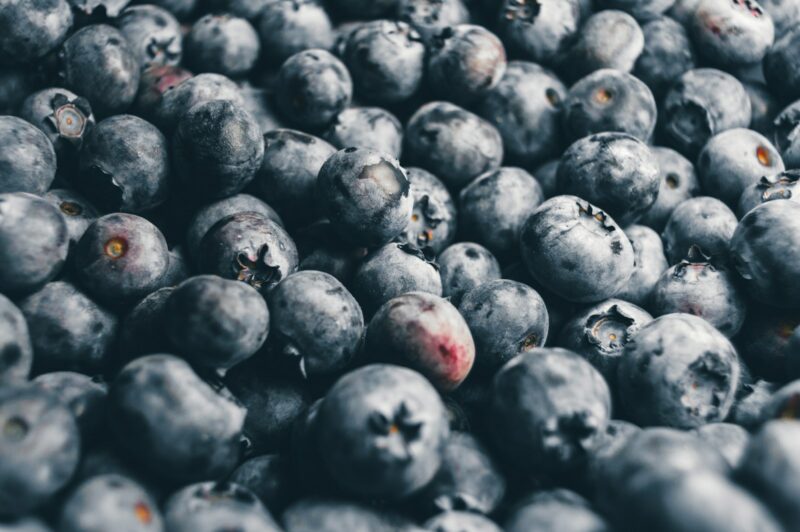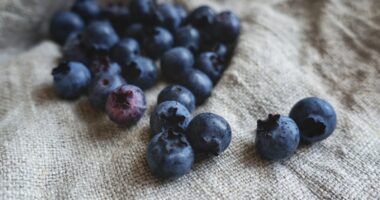Introduction: In recent years, the term “superfood” has become increasingly popular, often used to describe nutrient-dense foods that offer numerous health benefits. While there is no official definition for superfoods, they are generally recognized for their high levels of vitamins, minerals, antioxidants, and other essential nutrients. Incorporating superfoods into your diet can boost your overall health and well-being. In this blog post, we’ll explore the top 10 superfoods that can help you achieve optimal health.
1. Blueberries: Blueberries are small but mighty. Packed with antioxidants, particularly anthocyanins, they help protect the body from oxidative stress and inflammation. Blueberries are also rich in vitamins C and K, and dietary fiber.
Health Benefits:
- Improves brain function and memory
- Supports heart health by reducing blood pressure and cholesterol levels
- Enhances immune system function
How to Incorporate: Add blueberries to your breakfast cereal, yogurt, smoothies, or salads for a delicious and nutritious boost.
2. Kale: Kale is a leafy green vegetable known for its high nutrient content. It’s an excellent source of vitamins A, C, and K, as well as calcium, iron, and antioxidants.
Health Benefits:
- Supports bone health due to its high calcium and vitamin K content
- Reduces inflammation and oxidative stress
- Aids in detoxification and supports liver health
How to Incorporate: Use kale in salads, smoothies, soups, or as a base for healthy wraps.
3. Salmon: Salmon is a fatty fish rich in omega-3 fatty acids, which are essential for heart and brain health. It’s also an excellent source of high-quality protein, vitamins B12 and D, and selenium.
Health Benefits:
- Supports heart health by reducing triglycerides and blood pressure
- Promotes brain health and reduces the risk of cognitive decline
- Provides anti-inflammatory benefits
How to Incorporate: Enjoy grilled, baked, or poached salmon as a main dish, or add smoked salmon to salads, sandwiches, or omelets.
4. Quinoa: Quinoa is a gluten-free grain that is high in protein and contains all nine essential amino acids. It’s also rich in fiber, magnesium, and antioxidants.
Health Benefits:
- Supports muscle growth and repair
- Helps regulate blood sugar levels
- Promotes digestive health
How to Incorporate: Use quinoa as a base for salads, bowls, or side dishes. It can also be used as a substitute for rice or pasta.
5. Chia Seeds: Chia seeds are tiny seeds packed with nutrients. They are an excellent source of omega-3 fatty acids, fiber, protein, and various micronutrients.
Health Benefits:
- Supports digestive health due to their high fiber content
- Promotes heart health by reducing cholesterol levels
- Helps maintain stable blood sugar levels
How to Incorporate: Add chia seeds to smoothies, yogurt, oatmeal, or make chia pudding for a nutritious snack.
6. Avocado: Avocado is a creamy fruit rich in healthy monounsaturated fats, fiber, vitamins, and minerals. It’s particularly high in potassium, vitamin K, and folate.
Health Benefits:
- Supports heart health by lowering bad cholesterol levels
- Promotes healthy skin and hair
- Enhances nutrient absorption
How to Incorporate: Add avocado to salads, sandwiches, smoothies, or enjoy it as guacamole or a spread on toast.
7. Turmeric: Turmeric is a bright yellow spice known for its anti-inflammatory and antioxidant properties. The active compound curcumin is responsible for many of its health benefits.
Health Benefits:
- Reduces inflammation and pain
- Supports brain health and reduces the risk of neurodegenerative diseases
- Enhances immune system function
How to Incorporate: Use turmeric in curries, soups, smoothies, or make a turmeric latte for a warm and healthy beverage.
8. Spinach: Spinach is a leafy green vegetable rich in vitamins A, C, and K, as well as iron, calcium, and antioxidants. It’s known for its numerous health benefits.
Health Benefits:
- Supports bone health due to its high vitamin K and calcium content
- Promotes healthy vision and skin
- Aids in detoxification and supports liver health
How to Incorporate: Use spinach in salads, smoothies, soups, or as a base for healthy wraps.
9. Sweet Potatoes: Sweet potatoes are a nutrient-dense root vegetable high in vitamins A and C, potassium, and fiber. They also contain antioxidants that promote health.
Health Benefits:
- Supports immune system function
- Promotes healthy vision and skin
- Helps regulate blood sugar levels
How to Incorporate: Enjoy sweet potatoes baked, roasted, mashed, or added to soups and stews.
10. Greek Yogurt: Greek yogurt is a thick, creamy yogurt rich in protein, probiotics, and calcium. It’s a versatile superfood that can be used in various dishes.
Health Benefits:
- Supports digestive health due to its probiotic content
- Promotes muscle growth and repair
- Aids in weight management by increasing satiety
How to Incorporate: Enjoy Greek yogurt on its own, with fruit and nuts, in smoothies, or as a base for dressings and dips.
Conclusion: Incorporating these top 10 superfoods into your diet can significantly boost your overall health and well-being. Each of these foods offers unique benefits, from improving heart and brain health to supporting digestion and immune function. By making these nutrient-dense foods a regular part of your meals, you can enjoy a healthier, more vibrant life. Remember to pair these superfoods with a balanced diet and a healthy lifestyle for optimal results.









